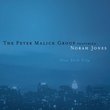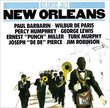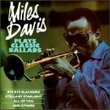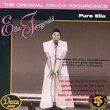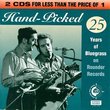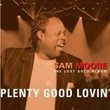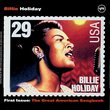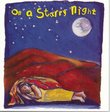| All Artists: Various Artists Title: Hip Jazz Bop: Not Your Typical Self Made Man Members Wishing: 1 Total Copies: 0 Label: 1201 Music Original Release Date: 6/1/1999 Release Date: 6/1/1999 Genres: Jazz, Pop, R&B Styles: Cool Jazz, Modern Postbebop, Swing Jazz, Bebop, Funk Number of Discs: 1 SwapaCD Credits: 1 UPC: 660652210327 |
Search - Various Artists :: Hip Jazz Bop: Not Your Typical Self Made Man
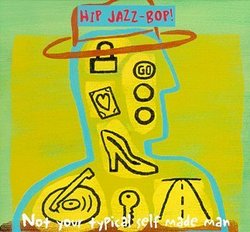 | Various Artists Hip Jazz Bop: Not Your Typical Self Made Man Genres: Jazz, Pop, R&B
"Jazz is not your typical lifestyle. Are you typical?" These insouciant bons mots are but a part of the colorful packaging designed to entice new listeners to a compilation of fine bop-era jazz. The Hip Jazz-Bop series min... more » |
Larger Image |
CD DetailsSynopsis
Amazon.com "Jazz is not your typical lifestyle. Are you typical?" These insouciant bons mots are but a part of the colorful packaging designed to entice new listeners to a compilation of fine bop-era jazz. The Hip Jazz-Bop series mines the vaults of the Black Lion label for choice cuts of 1950s and '60s jazz, when bebop and hard bop reigned supreme. The 10 selections here cover a lot of ground. Bud Powell's version of "Salt Peanuts" scampers at breakneck speed, whereas Dexter Gordon waxes melancholic on "I Guess I'll Have to Hang My Hat." Art Tatum, on "Body and Soul," and Ben Webster, on "Perdido," bridge the stylistic gap between swing and bop, while Kenny Dorham's "Grand Street," Howard McGhee's "Arbee," and Lee Konitz's "Mean to Me" fully capture the cool intensity of classic bebop. The neohipster packaging and hip '50s jazz make a nice fit and should pique curiosity for this time-honored music. --Wally Shoup Similarly Requested CDs
|
CD ReviewsAn Excellent Black Lion Compilation CD M. Allen Greenbaum | California | 08/28/2001 (5 out of 5 stars) "This is a fine compilation of musicians who recorded for Black Lion in the 40's through 70's. As in any sampler, the CD exposes the newcomer to several new artists, as well as offering variety and contrast for the longtime fan. The overall recording sound is very good. The opener features Howard McGhee blowing some Miles-associated tones with excellent swinging drums by Jimmy Cobbs, solid bass support (G. Tucker), and a spirited piano solo by Junior Mance. George Coleman (ts) echoes the cool trumpet tones, but this is McGhee and Cobbs' show. Stephane Grapelli fills the 3 ½ minute "Fine and Dandy"with great invention and movement, and Earl "Fatha" Hines has an unusual solo, mixing modern and older styles. Next up is Miles Davis from 1946, his slightly muted tones still clear and piercing, with a cool style Gene Ammons solo (ts), and Art Blakey growling along with his usual intense playing. Bud Powell seems just slightly off on "Salt Peanuts" (as does Art Tatum on his "Body and Soul"), but Powell alternates some interesting windy passages with his expected quirky, rapid, disjointed riffs. Dexter Gordon's tone on "I Guess I'll Have to Hang My Hat" is both wonderfully full-bodied and, at times, pitched dry like Jackie Maclean. Albert "Tootie" Heath adds intimate brushwork, with more atmospherics from N.H.O. Pederson (b) and Kenny Drew (p). And this is just side one! Side two includes five songs, led respectively by Art Tatum, Lee Konitz, Ben Webster, Grant Green, and Kenny Dorham. The highlights include Konitz's lively and playful "Mean to Me" and Frank Haynes sax work on the Grant Green and Dorham-led numbers. One of the best cuts is Ben Webster's version of "Perdido" (7:15). He gives the bop classic the lush Webster treatment, yet still adheres to the song's boppish roots: He works faster than usual here. A. Riel (drums) is particularly noteworthy here, flashy but not overwhelming, and Kenny Drew and NHOP lend excellent solos. Grant Green (guitar) plays memorably on "One for Elena," though Kenny Dorham could have been better recorded on "Grand Street." Overall, a very fine album, and a great introduction to some important and beautiful sounding musicians. Liner "notes" are limited to recording dates and personnel."
|

 Track Listings (10) - Disc #1
Track Listings (10) - Disc #1
